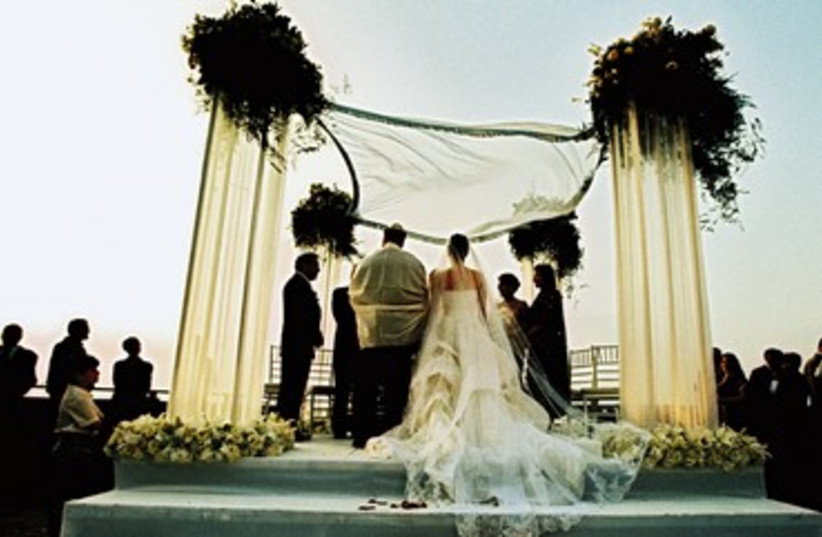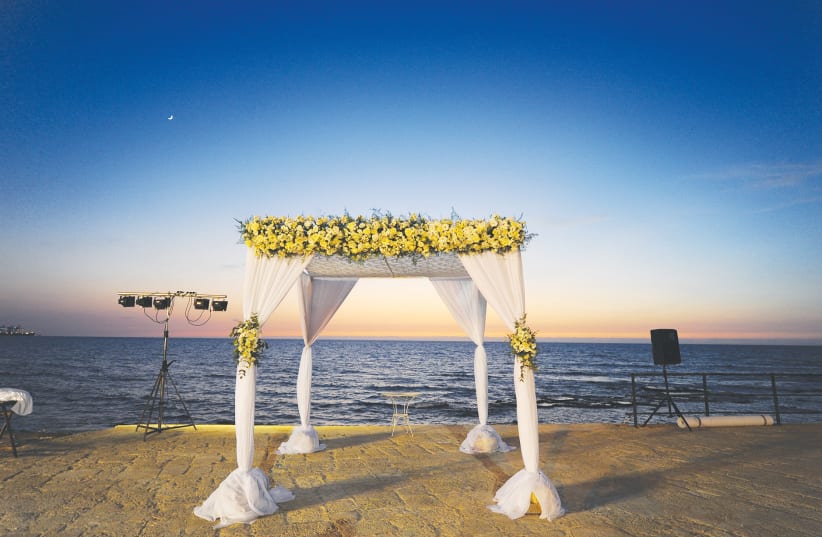There are some 85,000 intermarried couples in Israel in which one spouse is Jewish and one is not, according to data from the Central Bureau of Statistics (CBS).
The information was obtained recently by Dr. Netanel Fisher, head of the School of Public Administration, Governance and Law, at Sha’arei Mishpat, Academic College of Law and Science.
According to the data, there are in total 1.3 million married couples in Israel in which at least one spouse is Jewish, of whom 85,000 include just one Jewish spouse, meaning that intermarried couples constitute roughly 7% of all married couples.
These figures do not include couples of different religious identities who cohabit without marrying, or Israelis living with or married to foreign workers without permanent residency, for whom the CBS does not have figures.
The vast majority of intermarried couples in Israel, some 90%, involve a Jew and a citizen defined as “without religious classification,” the large majority of whom are Israeli citizens born in the former Soviet Union or their descendants.


There are today some 465,000 Israeli citizens “without religious classification,” most of whom are immigrants from the countries of the former Soviet Union or their descendants who are not Jewish according to Jewish law, but have a Jewish parent or grandparent.
In recent years, the number of such mixed marriages has been increasing.
CBS figures show that in 2011, there were at least 1,527 couples who married abroad that year, or registered their foreign civil marriage that year, in which one of the spouses was Jewish and the other non-Jewish.
Seven years later, in 2018, at least 2,460 such intermarried couples wed or registered their marriages that year, an increase of 38% in the rate of intermarriage.
A lack of clarity in the religious identity of another group of people included in the CBS statistics means that intermarriages could be almost twice this number.
Fisher said he is certain that mixed marriages would increase in number in the coming years, although he said such increases would be relatively small and not reach the extremely high figures seen in the US, by dint of the fact that Jews constitute a large majority of citizens in Israel, as opposed to every other country in the world.
“But if Jews in Israel thought intermarriage is only a challenge to communities abroad, we now know that intermarriage is also a challenge to Israelis as well,” added Fisher.
The size of Israel’s population of citizens “lacking religious classification” is itself on the rise through natural growth, with approximately 4,990 babies born to women in this group in 2020.
In addition, significant numbers of immigrants to Israel are also not Jewish according to Jewish law, mostly from the former Soviet Union.
According to the Interior Ministry, 37% of immigrants to Israel from 2012 to 2019 were not Jewish according to Jewish law, and immigrated under the terms of the Law of Return, which requires a person to have one Jewish grandparent, or to have converted, to be eligible for Israeli citizenship.
Some 61% of immigrants from Russia since 2012 were not Jewish, along with 66% of immigrants from Ukraine, and 64% of those from Belarus.
The average number of immigrants to Israel per year in the decade from 2010 to 2019 was approximately 25,000. That number had been steadily rising prior to the COVID-19 pandemic, reaching 33,247 immigrants in 2019, according to the CBS.
